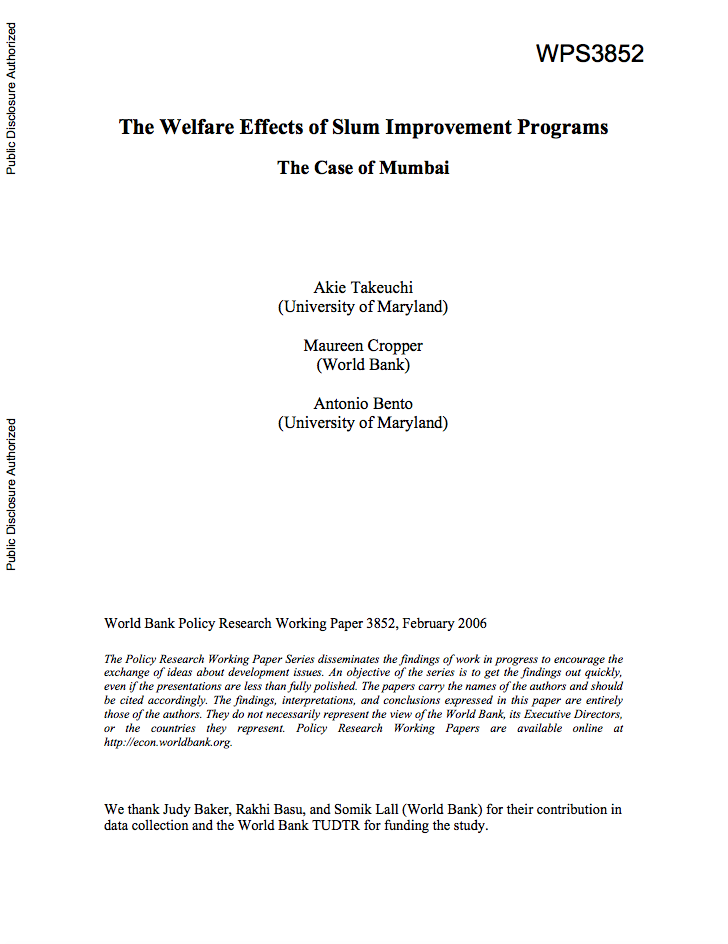A Framework for Housing Policy Reform in Urban Areas in Egypt : Developing a Well Functioning Housing System and Strengthening the National Housing Program
This document builds upon several recent
studies and reports carried out in the 2006-2007 period. The
first note, entitled analysis of housing supply mechanisms
(World Bank), analyzes the situation of housing supply in
urban areas in Egypt, including the study of existing formal
and informal mechanisms for the delivery of urban housing,
the institutions responsible for supply and regulation, the
characteristics of the formal and informal stock, and the


